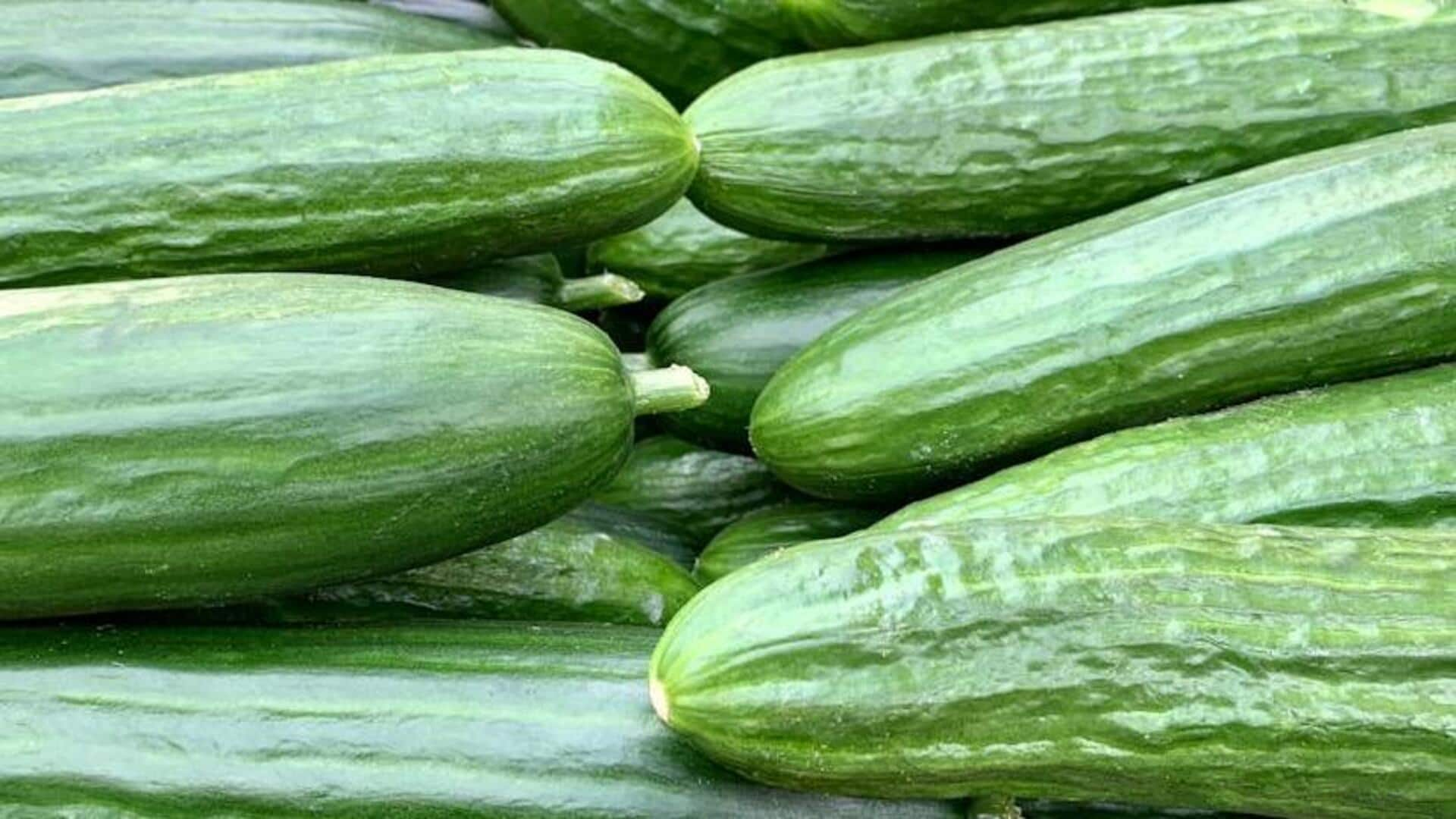
Cucumber v/s zucchini: Which is healthier?
What's the story
Cucumbers and zucchinis are often confused as they look so similar, but they have different nutritional profiles. Both are low-cal veggies that provide essential nutrients, which is why they are popular in healthy diets. Knowing how different their nutritional content is can help you make informed dietary choices. Let's look at what cucumbers and zucchinis offer in terms of specific nutrients.
Calories
Caloric content comparison
Cucumbers are famous for their low caloric content, coming in at roughly 16 calories per 100 grams. Zucchinis also boast a low calorie count, providing about 17 calories per 100 grams. Both vegetables, therefore, make for great options for those wanting to manage weight without compromising on nutrition.
Vitamins
Vitamin content analysis
Cucumbers are a good source of vitamin K and vitamin C, providing these nutrients in moderate amounts. Meanwhile, zucchinis have a richer profile with a higher concentration of vitamin A than cucumbers. They also provide significant amounts of vitamin C and vitamin K. These vitamins are essential to support immune function and maintain bone health, making both vegetables beneficial additions to a balanced diet.
Minerals
Mineral composition overview
Cucumbers and zucchinis also contribute significantly to minerals, especially potassium and magnesium. Cucumbers get a slight edge over zucchinis in terms of potassium, which is essential for keeping your heart healthy. Meanwhile, zucchinis have more magnesium than cucumbers, which is important for muscle functioning and energy production. These minerals are essential for a healthy diet, benefiting bodily functions and the nutrition profile of these vegetables.
Fiber
Fiber content examination
With nearly 0.5 grams of fiber per 100 grams, cucumbers are extremely important for digestion without being too calorific. Meanwhile, zucchinis offer approximately 1 gram of fiber per 100 grams. This is a good amount for digestion as it ensures regular bowel movements. Both veggies are therefore great for anyone who wants to stay healthy without consuming too many calories.
Hydration
Hydration benefits highlighted
With nearly 95% water content, cucumbers are an excellent hydrator in summer or after an exercise. Zucchinis are a close second, containing nearly 94% water, which helps keep you hydrated. Both veggies play an important role in hydration/nutrient-focused diets. Their high water content not only keeps you hydrated, but also guarantees you get necessary nutrients without adding many calories.